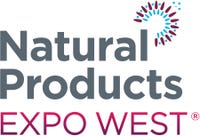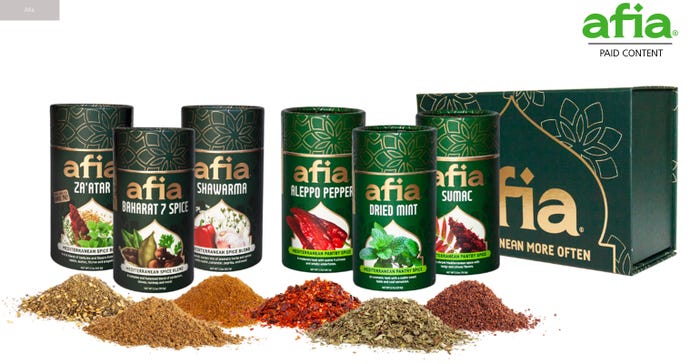5 ways natural products retailers can support regenerative agriculture brands
Seeking out products that have the Land to Market verification seal is just one way retailers can support sustainable agricultural processes.

A grocery retailer recently asked me how they can best support regenerative agriculture without greenwashing. It's a thought that seems to be on a lot of retailers' minds currently. Greenwashing about regenerative is already commonplace, and it's likely to get worse unless more retailers' quality assurance teams require proof.
Such proof is ideally achieved with a credible second- or third-party verification or certification. According to a recent survey Land to Market conducted of natural consumers across theUnited States, 45% of people said a seal—such as a verification or certification—backed by science would make them more inclined to purchase products with regenerative claims.
Fortunately, such a label exists: the Land to Market verification seal, which is on over 1,000 products found in retailers like Whole Foods Market, Natural Grocers, Erewhon Market, MOM's Organic Market and Thrive Market. Land to Market is the Savory Institute's program that certifies regenerative agriculture practices by measuring soil health.
The education journey starts with retailers
Here are some ways retailers (big chains to independents, traditional grocers to specialty stores like butcheries) can champion regenerative agriculture and, in general, improve environmental health.
Get out on the land—In order to fully appreciate a regenerating ecosystem within an agricultural context, one needs to physically be on the land to effectively see how livestock can be key to improving ecosystem function, such as by improving soil health and biodiversity. When we first begin to work with a retailer, we like to get their team out onto a local farm that has achieved Ecological Outcome Verification, or EOV, the science inside of Land to Market. Getting retailers out onto a verified regenerative farm allows us to help take them a deep dive into regeneration. We are typically conducting these events during spring or autumn.
Make a public commitment to sourcing regeneratively—Take a stand and commit to doing better by the planet by telling the world that your store plans to stock products from regenerative land whenever possible. See examples of other companies that have made such a commitment here.
Identify and stock products coming from verified regenerative land—Anyone can claim that their products come from regenerative land. We see a lot of companies talking about so-called "regenerative practices," to which we recommend putting less emphasis on the practices of farmers, as every farm is different and farmers know their land best. Focus instead on measurable outcomes. For this reason, it is best for retailers to stock products that can offer proof, not just a claim. And remember, the products themselves are not regenerative; products sitting on a shelf cannot regenerate anything, but rather the land they came from can be regenerating.
Promote verified regenerative products during Earth Month—Anytime is a good time to showcase higher attributed products like those coming from regenerative land but there are a few times of year that lend themselves especially well: Earth Day (April 22), as well as World Environment Day (June 5) and World Soil Day (Dec. 5). I recommend retailers carve out a time each year to create a campaign focused on products that come from regenerative agriculture. Inside the store environment, that could look like endcaps featuring products only from regenerative farms or shopper marketing signage bringing to life issues such as the importance of soil health as a means for drought mitigation and overall healthier environments.
Have a mindset of continuous improvement—While it's nice to uplift brands trying to do right by the planet, it's important to not alienate others that have not yet participated in higher attributed programs, like Land to Market verified regeneratively sourced, or other product labeling programs such as Global Animal Partnership certified animal welfare or Marine Stewardship Council certified sustainable seafood. Ideally, we can bring everyone along our better-for-the-planet regenerative journey.. It takes time to make big changes in how companies produce or source their natural products, and that's OK.
Retailers have unique influence to get shoppers primed for new ideas. Many shoppers are often busy and distracted when on their path to purchase, in stores or online, and don't always have time or energy to read shopper marketing signage or product packaging. Rightly so, we all have a lot going on and simply can't know about or care about everything.
If retailers can at least plant the seed in shoppers' minds about regenerative and why land health matters, then brands producing products from regenerative farms, and securing verifications like Land to Market, can do the rest.
Lisa Mabe leads marketing and communications at Land to Market and is an award-winning expert in consumer insights and marketing communications within the agriculture and natural products industries.
 Regenerative agriculture is the topic of Friday's Expo West panel discussion, Global Perspectives on Regenerative Systems: Strategies & Insights for Systemic Shifts, led by Regenerative Rising Executive Director Nisha Mary Poulose. The session begins at 10 a.m. PT in Grand Ballroom E at the Marriott. To learn more about this program and others, as well as exhibiting brands, visit ExpoWest.com. To see registration options, including those for virtual access, click here.
Regenerative agriculture is the topic of Friday's Expo West panel discussion, Global Perspectives on Regenerative Systems: Strategies & Insights for Systemic Shifts, led by Regenerative Rising Executive Director Nisha Mary Poulose. The session begins at 10 a.m. PT in Grand Ballroom E at the Marriott. To learn more about this program and others, as well as exhibiting brands, visit ExpoWest.com. To see registration options, including those for virtual access, click here.
About the Author
You May Also Like




